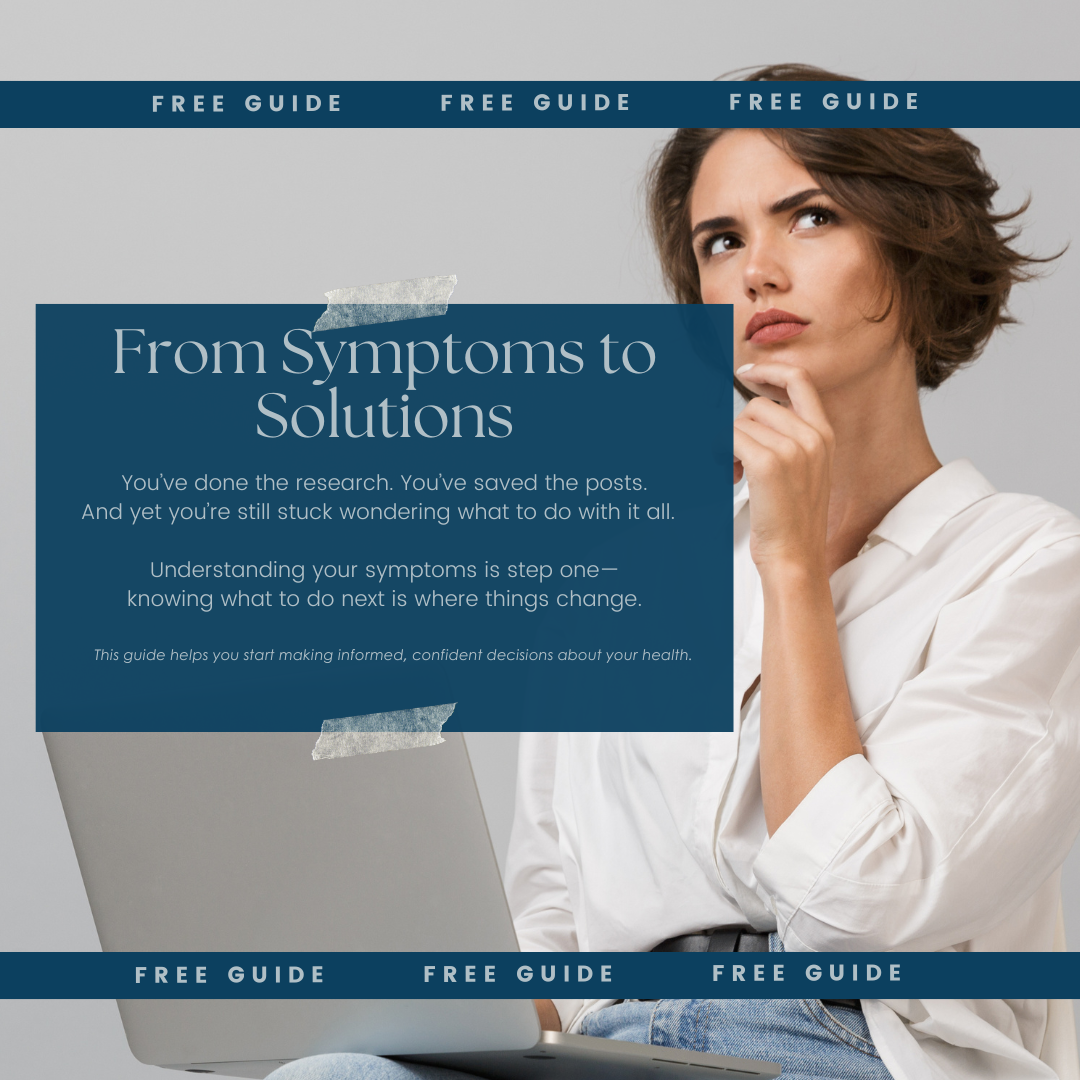Nutrition Tips for Menopause: What to Eat to Reduce Symptoms and Feel Your Best
Mar 01, 2025
Let’s get one thing straight: menopause isn’t a disease. It’s a natural, inevitable part of a woman’s life—when your MENstrual cycle PAUSEs… for good. 🎉
You’ve “officially” reached menopause 12 months after your last period. And yes, it is absolutely acceptable to throw a party. (Cake is optional but encouraged.)
But here’s the thing—the transition to menopause doesn’t happen overnight.
What Is Perimenopause and When Does It Start?
Before menopause comes perimenopause—the rollercoaster ride that can start in your early to mid-40s. It’s when your hormones begin to shift, and you may notice some not-so-fun symptoms creeping in, like:
-
Weight gain (especially around your midsection)
-
Hot flashes and night sweats
-
Sleep disturbances
-
Mood swings
And postmenopause? Your risks for heart disease and osteoporosis go up, so your nutrition habits matter more than ever.
Your body is changing, and your diet should evolve right along with it. The foods you eat can either fan the flames (literally—hello, hot flashes) or help calm your system and reduce symptoms.
Top Nutrition Tips for Menopause
💧 Stay Hydrated
As we age, our sense of thirst fades—and dehydration can make menopausal symptoms worse. If you’re dealing with hot flashes, night sweats, or vaginal dryness, try increasing your water intake by 12–24 ounces a day. Pro tip: Add a pinch of sea salt or a squeeze of lemon to your water to help with absorption.
🍷 Cut Back on Alcohol
Not what anyone wants to hear… but here’s the truth: alcohol can increase hot flashes, interrupt sleep, and heighten your risk for falls, balance issues, and weight gain. It also adds empty calories without giving your body anything useful. Looking for a feel-good alternative? Try one of my favorite skinny recipes instead!
🌶 Avoid Hot Flash Triggers: Spicy Food, Sugar, and Caffeine
Spicy meals and caffeine are two common culprits when it comes to hot flashes. And sugar? It’s linked to increased menopausal symptoms—especially when it comes to night sweats, joint pain, and bladder issues.
Try these swaps:
-
Replace sugary drinks with water or herbal tea
-
Choose smaller dessert portions instead of cutting sweets entirely
-
Stick to gentle seasonings over spicy heat
🥄 Watch Your Portions
After 50, you need about 200 fewer calories per day than you did in your 30s and 40s (assuming your activity levels are the same). Keep eating the same way you always have, and weight gain will sneak up on you. Women in their 50s and 60s gain an average of 1.5 pounds per year. Mindful eating and smaller portions can help stop that in its tracks.
🥬 Eat More Nutrient-Dense Foods
You might be eating less, but your need for quality nutrition goes UP. Focus on:
-
Whole grains
-
Leafy greens
-
Fruits and veggies
-
Lean protein (like legumes, nuts, seeds, fish, or poultry)
Studies show that women who eat more greens and fewer processed foods report fewer hot flashes and fewer overall symptoms.
🌱 What About Soy and Phytoestrogens?
Phytoestrogens are plant-based compounds that act like estrogen in the body. Soy is the most well-known food source and may help reduce symptoms like hot flashes.
You can find phytoestrogens in:
-
Tofu
-
Tempeh
-
Soy milk
-
Flaxseeds
-
Chickpeas
Before taking any phytoestrogen supplements, talk to your healthcare provider to see if they’re right for you.
Ready to Feel Better in Midlife?
If you’re struggling with symptoms like brain fog, weight gain, or fatigue, you don’t have to go it alone.
🎯 Book a free Mastering Midlife chat with me, and let’s figure out how personalized nutrition, lifestyle tweaks, and support can help you feel strong, clear, and confident again.
👉 Also read: Healthy Gut ~ Happy Life to learn how digestion changes in midlife.
Stay connected with news and updates!
Join our mailing list to receive the latest news and updates from our team.
Don't worry, your information will not be shared.
We hate SPAM. We will never sell your information, for any reason.


